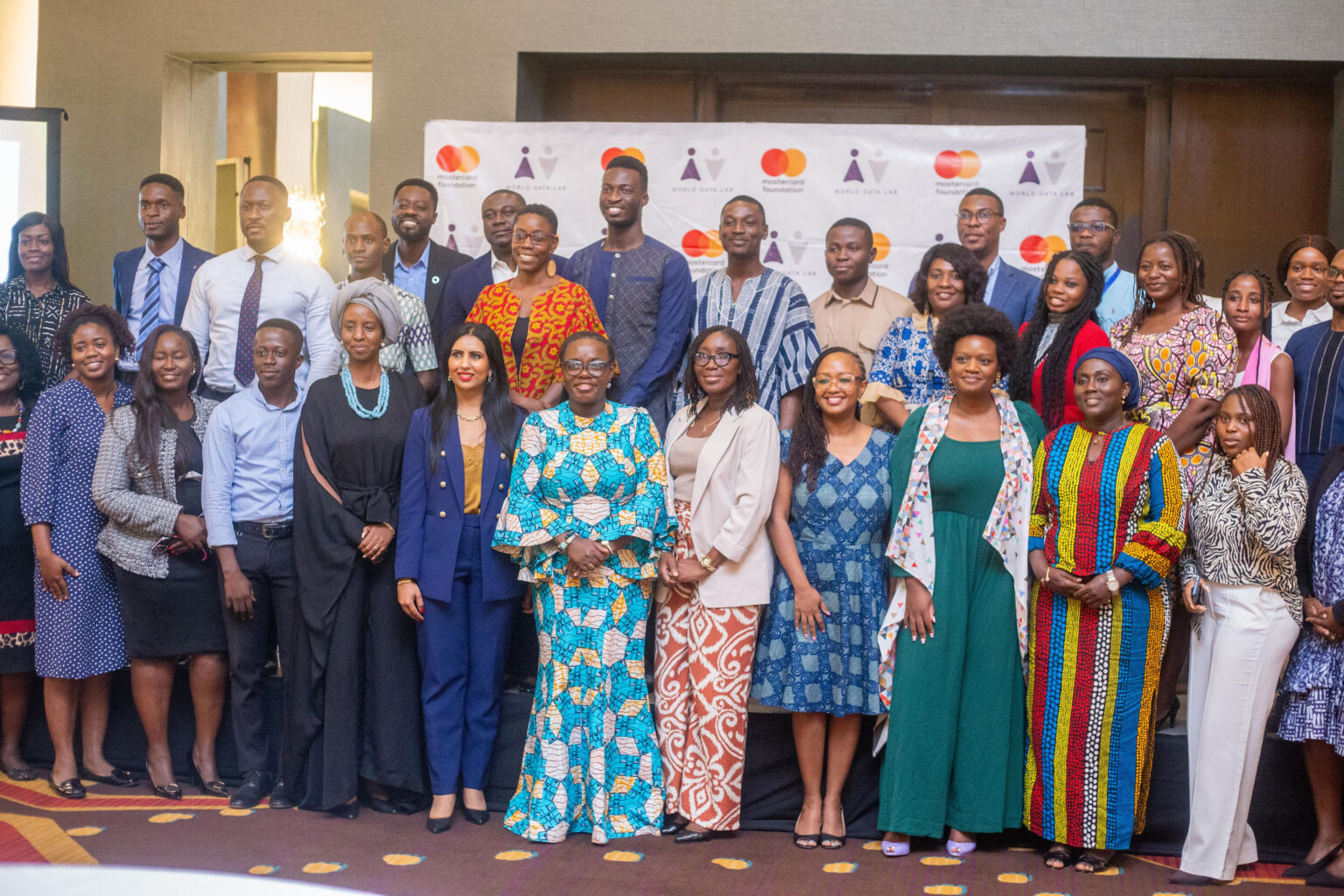The Vice-Chancellor of the University of Ghana, Prof. Nana Aba Appiah Amfo, has emphasised the importance of data-driven decision-making for development and employment in Africa at the launch of the Africa Youth Employment Clock.
Her comments come amidst rising youth unemployment rates across the African region and ongoing efforts by governments, development partners and institutions to find solutions, noting that data is essential in this process.
The innovative tool, developed through a partnership between the Mastercard Foundation and the World Data Lab, is designed to advance understanding and advocacy in creating employment opportunities for young people. It primarily functions as a digital tool that monitors real-time job growth and forecasts employment trends in Africa up to 2030.
During her keynote address, Prof. Amfo highlighted the critical role of real-time data in policy planning and job market analysis. She praised the collaborative efforts of the MasterCard Foundation and the platform developers for their commitment to providing actionable data that can drive impactful decisions.
Prof. Amfo pointed out that Ghana faces a significant challenge with youth unemployment, which stands at 32 percent. She stressed the need for strategic planning in various sectors to create future work opportunities and prepare the youth for a technology-driven job market.
She underscored the importance of young people acquiring critical skills, stating, “The acquisition of critical skills such as digital literacy, presentation skills, critical thinking and analytical skills should be essential for young people and our training programmes. These skills are crucial in ensuring they are prepared for the expanding job market.”
Speaking on the University of Ghana’s efforts to ensure its graduates have employable skills and are equipped to create self-employment opportunities, Prof. Amfo named the Student Venture Support Programme, UGBS Innovation and Incubation Hub, UG Internship Policy and the various programmes run by the UG Careers and Counselling Centre. These platforms the Vice-Chancellor stated are designed to equip students and develop the skills of young people for an increasingly technology-driven job market.
Prof. Amfo reiterated the importance of using data for development and economic planning, lauding the MasterCard Foundation for their continuous support and dedication to youth employment initiatives.
In her welcome address, Ms. Rica Rwingamba, the Country Director for Ghana at the Mastercard Foundation, highlighted the foundation’s mission in Africa, noting that 10% of their goals are focused on Ghana.
“The Mastercard Foundation, established in 2006 as an independent Canadian organisation by the Mastercard company, initially centered on education and financial inclusion in Africa. Now, through our Young African Work Strategy, we aim to enable 30 million young people across the continent to find dignified and fulfilling work, with 10% of this goal, or 3 million, targeted for Ghana,” the Country Director mentioned.
Ms. Rwingamba further outlined the foundation’s target groups, emphasising the potential for transformation as Africa’s youth population is expected to grow significantly, reaching over 600 million by 2030.
“We view young people as innovators in Africa, ready to address global and local challenges. The launch of the Youth Employment Clock is a call to action for all stakeholders, clearly showing where we are and where we need to go. By leveraging this data, we can ensure that our efforts are impactful and contribute to the grand vision of transforming the African continent,” she added.
Dr. Reshma Sheoraj, Vice-President of Strategic Engagements at the World Data Lab, presented an overview of the platform, explaining what can be tracked and how best the Clock can be leveraged to promote job creation across Africa. She noted that young people could use the platform to identify sectors with increasing employment opportunities.
The launch of the Africa Youth Employment Clock marks a significant step towards addressing youth unemployment in Africa, providing a platform for data-driven advocacy and decision-making to create sustainable job opportunities for the continent’s youth.
Launched in Accra, the Clock is intended to democratise data and inform the strategic decision-making of policymakers, development actors, youths and other stakeholders interested in promoting inclusive labour markets. A user-friendly and publicly available tool with cutting-edge data modeling and visualisation, the Clock draws from surveys and datasets provided by national statistics offices, the International Labour Organisation (ILO) and the International Institute for Applied Systems Analysis (IIASA).

